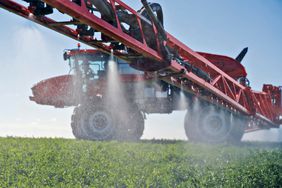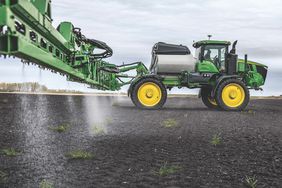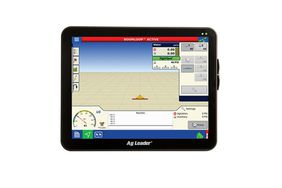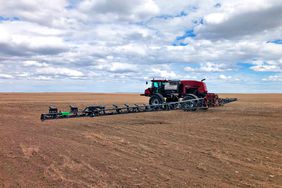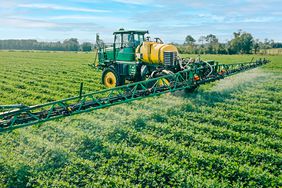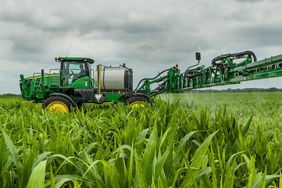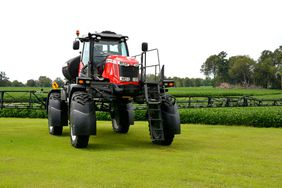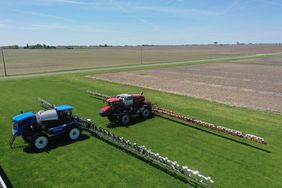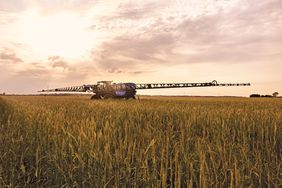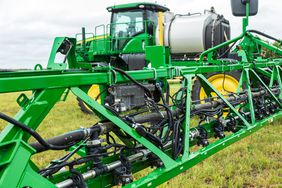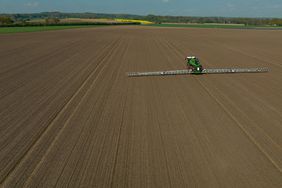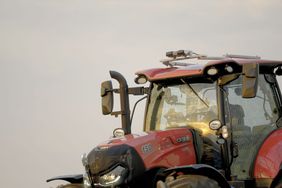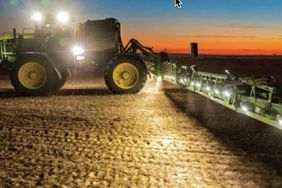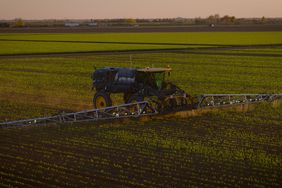:max_bytes(150000):strip_icc()/img_5564f7d6ba059_48981-f641031e4ff14bc883249c1307bf96eb.jpg)
If soggy conditions have kept you out of fields, you may be completing chemical applications at all hours of the day, including in the moonlight.
"We're hearing that growers are having to use every minute of dry weather they can to work in their fields, and that is forcing many to spray at night," says Jeremy Hurt of Equipment Technologies, manufacturer of Apache-brand sprayers. "But with the right equipment and application practices, growers can achieve the same coverage in no more time than it would take them during the day."
Importance of precision technology
Auto guidance systems, precision boom leveling, and spray section controls take on greater importance at night when visibility is limited.
"With GPS guidance, your field computer will give you a line to follow so that you don't leave unapplied areas as the sprayer goes across the field," explains Hurt. "It can be difficult to rely on foam markers at night, because you might not be able to see those marks."
Auto boom leveling and spray section controls also come in handy as they work to keep booms at a consistent height and spray only where needed.
Operator tips
- Dim the monitor screen in the cab. "Most controllers have a night mode you can use that will dim the screen, so you don't get a lot of reflection," says Hurt.
- Turn on flashers and beacon lights when driving on public roads.
- Perform preventative maintenance beforehand.
- Remain alert and know when to stop for the night. "Accidents are more likely to occur when you're tired," says Hurt. "Sometimes it's just best to go home, get some rest, and start again first thing in the morning."
:max_bytes(150000):strip_icc()/Jessie-Scott-e5d5c2e8613948b4a0b503787be9d971.jpg)
